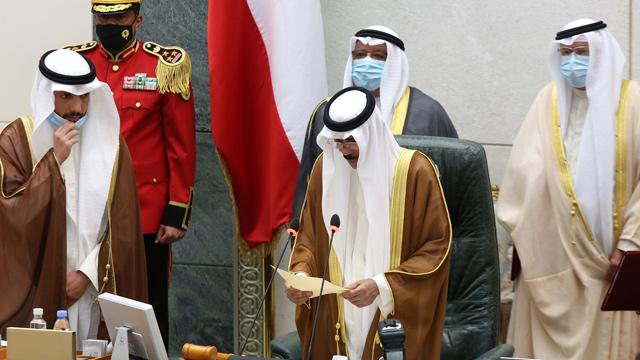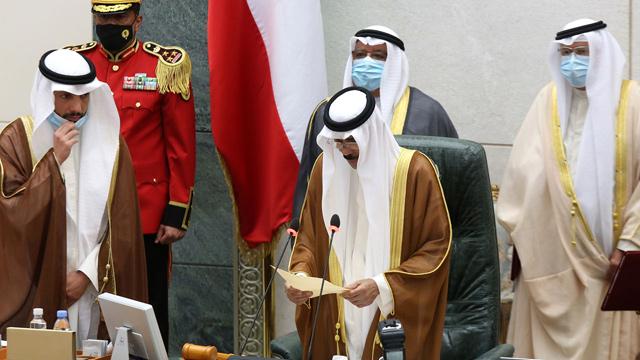- International News
- Thu-2020-10-01 | 03:29 pm

Nayrouz News Agency :
Kuwait on Wednesday swore in its new emir, Sheikh Nawaf Al Ahmad Al Sabah, and prepared to receive the body of his half-brother, the late ruler Sheikh Sabah who died in the US at the age of 91.
Sheikh Nawaf was visibly emotional as he addressed the National Assembly a day after the death of the emir, an acclaimed diplomat and mediator who ruled for 14 years.
"I promise you that I will do my best and everything in my power to preserve Kuwait, its security and stability, and to ensure the dignity and well-being of the people," the 83-year-old said after taking the oath of office.
He called for unity against the challenges that face the region, and committed himself to Kuwait's "democratic approach" in the address before lawmakers, who sat socially distanced and in masks in line with coronavirus precautions.
Kuwait, unlike other Gulf states, has a lively political arena with a fully elected parliament that enjoys wide legislative powers and can vote ministers out of office.
The remains of Sheikh Sabah Al Ahmad Al Sabah are expected to arrive in Kuwait City later on Wednesday, on a flight from Minnesota where he had been undergoing treatment in hospital since July.
According to the royal court, the funeral will be "restricted to the emir’s relatives” — a move likely designed to avoid large crowds amid the coronavirus pandemic. The country has already begun a 40-day period of national mourning.
Sheikh Sabah earned a reputation as a shrewd, unshakeable leader who helped steer his country through the 1990 Iraqi invasion, crashes in global oil markets and upheavals in parliament and on the streets.
World leaders and Kuwaitis alike have hailed the legacy of the late emir, architect of the nation’s modern foreign policy and mediator in some of the worst crises to grip the Gulf.
"This man was the safety valve of the Arab world, not just for Kuwait,” Bandar Al Dahani, a Kuwaiti citizen, told AFP.
"God willing, that goodness will be in Crown Prince Sheikh Nawaf and he will follow the emir’s path.”
"Sheikh Nawaf al-Ahmed should be viewed more as a caretaker than as a watershed new leader,” said Cinzia Bianco, a research fellow at the European Council on Foreign Relations.
"Behind the scenes, however, younger princes would likely continue to compete to succeed him.”














